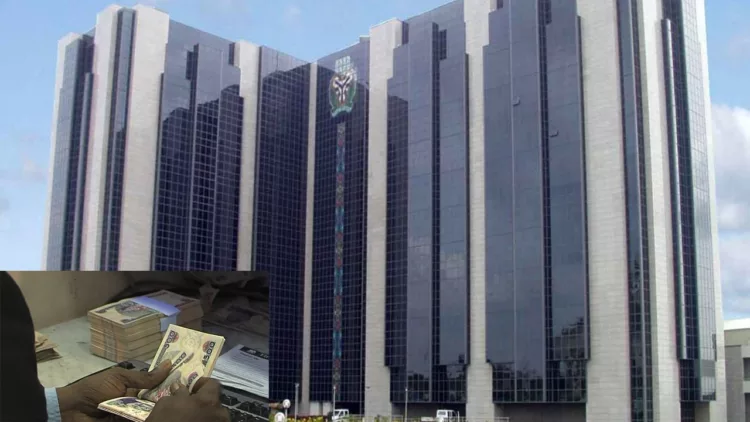Security
Matawalle slams death penalty on cultists, bandits, their informants in Zanfara

A law that imposes death penalty on bandits, their informants, cultists and cattle rustlers has been signed in to law by the Zamfara State government.
The Governor of the State Bello Matawalle made the disclosure in a broadcast to the people of the state on Tuesday morning.
He said, “On the 28th of June this year, I assented to the bill on Prohibition and Punishment for Banditry, Cattle Rustling, Cultism, Kidnapping and Other Incidental Offences, 2022.
“The law provides a legal instrument for prosecuting banditry-related offenders.
“Based on the new law, anyone found guilty of banditry, kidnapping, cattle rustling, cultism, or serving as a bandits’ informant is subject to the death penalty.
“Similarly, anyone found guilty of supporting in any manner the aforementioned offences faces a sentence of life in prison, 20 years in jail, or ten years in prison, without the option of a fine.”
The measures were part of his administration’s sustained efforts to tackle the problem of banditry that has bedevilled the state and the neighbouring northwestern states for more than a decade the Governor stated
Ever since the inception of his administration, Matewalle indicated that he has been developing strategies to stem the tide of banditry across the state.
He expressed satisfation with the new measures are beginning to yield the intended results despite the pockets of attacks by the bandits
According to him, the activities of the informants was a major challenge towards addressing insecurity in the state, expressing optimism that the situation would soon come to an end.
He said, I am glad to inform the peace-loving people of Zamfara State that we have succeeded in apprehending many of the informants, who have been the major impediment in the fight against banditry.
“They are currently being interrogated before being prosecuted in accordance with the fullest extent of the law”.
Security
CBN backpedals, Withdraws Circular On Cybersecurity Levy

The circular the Central Bank of Nigeria (CBN) issued to all commercial banks on May 6, 2024, directing them to implement a compulsory withdrawal of 0.05 per cent from every electronic transaction as cybersecurity levy has been withdrawn
The directive for collection of the levy led to a nationwide uproar when the central bank introduced the policy last week.
The Presidency however, heeded the warning from various quarters, succumbed and immediately suspended the implementation of the Cybersecurity Levy.
In a withdrawal circular that was issued by the CBN on Sunday night, it directed the banks not to go ahead with the initial directive, in line with the presidential directive. The apex bank authorities claimed it’s a sign that the present administration was a listening one that prioritises public good.
“Further to this, please be advised that the above referenced circular is hereby withdrawn,” CBN director in charge of payments system, Chibuzo Efobi, and the director, financial policy and regulation, Haruna Mustapha, said in the circular, adding that all banks should “Please be guided accordingly.”
Security
Kogi: Police Confirm Rescue Of 7 More CUSTECH Students

By Friday Idachaba, Lokoja.
Nigeria Police, Kogi State Command has announced the rescue of seven more students of Confluence University of Science Secondary Technology (CUSTECH) kidnapped by hoodlums on Thursday, May 9.
Police Public Relations Officer (PPRO) SP William Ovye Aya, made the announcement in a press statement on Thursday in Lokoja.
He said that feat was achieved through the intervention of Inspector-General of Police, IGP Kayode Adeolu Egbetokun who ordered the deployment of the Air Component of Police Security Apparatus made up of a Helicopter Crew.
The deployment, he said was in furtherance of the ongoing Rescue Operation and to sustain the onslaught to rescue all the kidnapped students.
He said that the Air Component deployed to Kogi State on Tuesday 14th May, 2024 was made up of Helicopter Crew specially trained for Aerial Surveillance, Monitoring Team as well as Technical Intelligence Unit (TIU).
“The reinforcement is in response to IGP’s unwavering passion about protecting lives and property of all Nigerians especially the safety of our children in various schools in the country”, Aya said.
With the new development which Aya ascribed to the diligence and indomitable spirit of all the combined team, 27 students have so far been rescued from the kidnappers as a total of 20 students were earlier rescued.
“Be it noted that it is not over until it is over” so we should not rest on our Oars, instead all hands must be on deck to ensure all are safely rescued and perpetrators brought to deserved justice”, the PPRO declared.
He stated that Kogi State Government as well as the University Community were satisfied with the Rescue Operations so far.
“The State Government has commended the indubitable, unassailable level of cooperation, collaboration and synergy amongst the Security Agencies, Local Vigilantes and Hunters in the State”, he enthused.
According to Aya, the Commissioner of Police, CP Bethrand Onuoha has seized this occasion to thank and appreciate the Inspector-General of Police for the deployment of the Air Component.
The CP, he said, also commended the Security Personnel, and Vigilantes/Hunters for their “show of unprecedented and undiluted patriotism and altruism, and to the good people of Kogi State as well as the vibrant Press for their show of concern and empathy.”
“The CP will continue to solicit the cooperation, collaboration and solidarity of the good people of Confluence State with the Police and other Security Agencies.
“Together, we shall ensure adequate Security of life and property of law-abiding citizens in the State”, he assured. (Ends)
Security
Senate backs FG, CBN over controversial Cybersecurity levy

***Insists, it is NASS creation to safeguard economy, country against insecurity
The Chairman of the Senate Committee on National Security and Intelligence, Senator Shehu Umar Buba, has allay the fears being entertained by Nigerians over the proposed implementation of the Cybersecurity levy by the Central Bank of Nigeria (CBN).
While giving tacit support to the Federal Government on the levy that has created bad blood among Nigerians against the Tinubu administration Senator Buba said th levy is provided for in the Cybercrimes (Prohibition, Prevention, etc) (Amendment) Act, 2024.
He clarified that the levy is not punitive as it has numerous exemptions to protect and relieve ordinary citizens, particularly the poor.
According to him, the exemptions include salary payments, intra-account transfers, loan disbursements and repayments, and other financial transactions.
Senator Buba said the amendments to the Cybercrimes Act were collaborative effort with the National Assembly’s ICT and Cyber Security Committee. Explaining further he said committee also underwent a transparent public hearing process, receiving contributions from various stakeholders.
“Both chambers of the National Assembly unanimously passed it before President Bola Ahmed Tinubu signed it into law.
Senator Umar reiterated the fact that the provisions for the cybersecurity levy have been in place since 2015 but were delayed due to unclear interpretations and applications.
“The Cybercrimes Act of 2015 has provisions for imposing a cybersecurity levy since its enactment, but the vagueness of Section 44 led to different interpretations until the 2024 amendments. The levy is 0.5%, equivalent to half a per cent of the value of all electronic transactions by businesses specified in the Second Schedule to the Act.
“The amendments addressed crucial gaps in the Act and empowered the nation to implement the National Cybersecurity Programme effectively. They also seek to realign and empower the country to combat the inadequate funding and disruptive effects of cyber threats on national security and critical economic infrastructures,” he said.
Senator Umar underscored the criticality of the cybersecurity levy’s implementation, stating that its prudent utilisation will bolster the nation’s capacity to evaluate, execute, upgrade, and fortify the security of national critical economic infrastructure, thereby safeguarding the nation’s cyberspace.
The chairman commended the Office of the National Security Adviser and the Central Bank of Nigeria (CBN) for initiating the operationalising the cybersecurity levy, highlighting its benefits far outweigh its drawbacks.
He expressed appreciation to the leaders and representatives of MDAs at the federal and state levels, as well as to all stakeholders who contributed to this effort’s success.
While maintaining that the Committee’s mandate is to create laws that align with the aspirations of Nigerians, he appealed for public support, assuring that the policy will yield maximum benefits for citizens in the shortest possible time.
Following the enactment of the Cybercrime (Prohibition, Prevention, etc) (Amendment) Act 2024 and under the provision of Section 44 (2)(a) of the Act, a levy of 0.5 per cent (0.005) equivalent to half per cent of all electronic transactions value by the business specified in the Second Schedule of the Act is to be remitted to the National Cybersecurity Fund, which the Office of the National Security Adviser shall administer.
Though the announcement created controversy, the circular exempted some transactions from cybercrime levy.
The exemptions included loan disbursements and repayments, salary payments, intra-account transfers within the same bank or between different banks for the same customer, intra-bank transfers between customers of the same bank, and Other Financial Institutions (OFIs) instructions to their correspondent banks.
The exemption also applies to interbank placements, banks’ transfers to CBN and vice versa, inter-branch transfers within a bank, cheque clearing and settlements, and Letters of Credit (LCs).
Others include banks’ recapitalisation-related funding only bulk funds movement from collection accounts; savings and deposits including transactions involving long-term investments such as treasury bills, bonds; and commercial papers; government social welfare programmes transactions, e.g. pension payments; non-profit and charitable transactions including donations to registered non-profit organisations or charities; educational institutions transactions, including tuition payments and other transaction involving schools, universities, or other academic institutions.
-

 Crime1 year ago
Crime1 year agoPolice nabs Killer of Varsity Lecturer in Niger
-

 News1 year ago
News1 year agoFCT-IRS tells socialite Aisha Achimugu not to forget to file her annual returns
-

 Appointment2 years ago
Appointment2 years agoTinubu names El-Rufai, Tope Fasua, others in New appointments
-

 News From Kogi1 year ago
News From Kogi1 year agoINEC cancells election in 67 polling units in Ogori-Magongo in Kogi
-

 News From Kogi2 years ago
News From Kogi2 years agoEchocho Challenges Tribunal Judgment ordering rerun in 94 polling units
-

 News2 years ago
News2 years agoIPOB: Simon Ekpa gives reason for seperatists clamour for Biafra
-

 Metro1 year ago
Metro1 year ago‘Listing Simon Ekpa among wanted persons by Nigeria military is rascality, intimidation’
-

 News1 year ago
News1 year agoKingmakers of Igu/ Koton-Karfe dare Bello, urge him to reverse deposition of Ohimege-Igu
